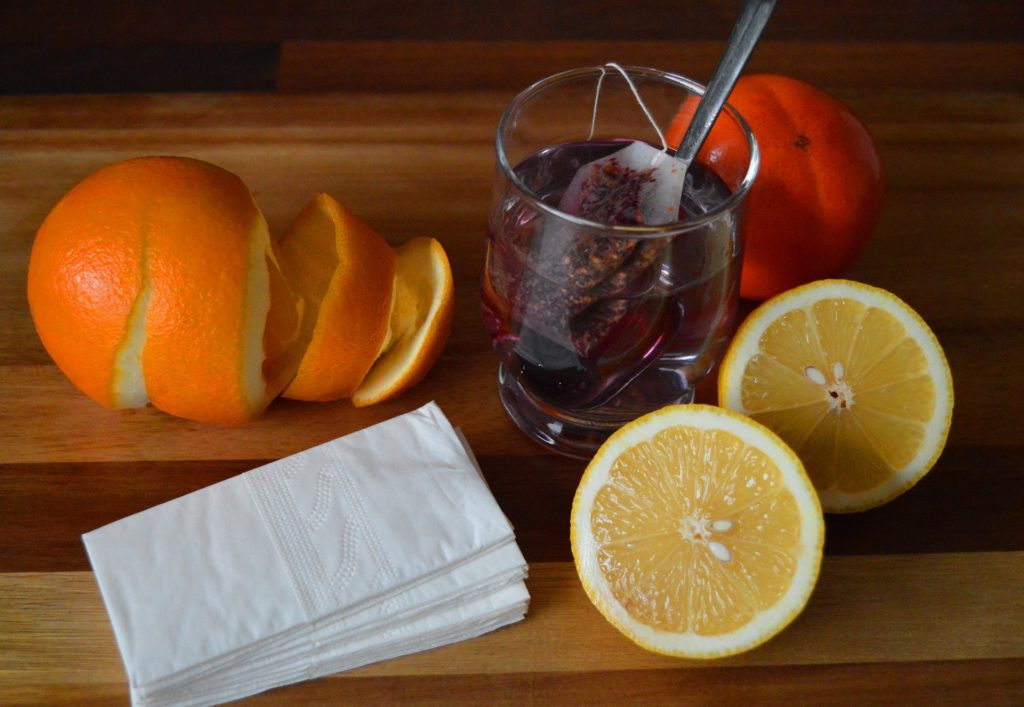With the coronavirus rearing its ugly head all over the country, you might be wondering how best to support your immune system. There are many ways to boost your immune system: eating lots of colorful fruits/vegetables and fermented foods to support your microbiome, moving your body daily, meditation/yoga, getting a good night’s sleep, and staying hydrated! There are also specific targeted nutrients that play specialized role in keeping your immune system on track.
Today’s nutrient spotlight will focus on only three of many amazing nutrients that keep viruses and infections at bay!
Vitamin C
This vitamin is probably the most well known of the immune boosting superstars. Studies show that Vitamin C intake helps reduce incidence of cancers, protects against pollutants and boosts immunity, while also ensuring that used up immune cells are disposed of through apoptosis (cell death). Vitamin C enhances white blood cell activation and antibody responses. It also appears to have a similar structure to interferon, which is our natural anti-cancer/anti-virus defense. Our white blood cells, lymphocytes, have a high Vitamin C content, which is depleted during infection. Replenishing Vitamin C through diet or supplementation is critical for keeping our white bloods strong and healthy. Additionally, our need for Vitamin C is increased during times of stress or when exposed to environmental pollutants, as well as if we have a greater oxidative burden (think of oxidative stress like an internal rusting process caused by damaged cells called free radicals). Vitamin C rich foods include peppers, broccoli, Brussels sprouts, and citrus fruits. The recommended daily amount of Vitamin C per day is 65-90 mg/daily. However, since Vitamin C is a water soluble vitamin, your body will just flush out what you don’t need. Therapeutic doses of Vitamin C may be much higher than the RDA in order to meet the demand of active infections.
Zinc
Zinc is a component of more than 200 enzymes in the human body. Zinc deficiency leads to increased risk of infection, poor wound healing, skin disorders, decreased taste or smell. Zinc is critical for keeping the thymus gland (where many of your white blood cells are made) healthy. Zinc stimulates the immune system and has anti-viral properties. Studies show that zinc supplementation may reduce the duration of the common cold by a week. Zinc is integral for protein synthesis, and protein is necessary to make antibodies that support a strong immune system. Zinc rich foods include oysters, mushrooms, pumpkin seeds, pecans, brazil nuts, oats, and walnuts. The recommended daily amount of zinc is 8-11 mg/day.
A word of caution. Be mindful not to overdose on zinc supplementation as it may cause decreased absorption of copper. Generally, intake of more than 50 mg daily may interfere with copper bioavailability.
Elderberry
Elderberry or Sambucus nigra, contains flavonoids, particularly anthocyanin, that have been found to bind to the flu virus and impede replication and infection of host cells. Elderberry is considered to be immune stimulating by up regulating production of inflammatory molecules that help fight the flu.
Small clinical trials have seen up to a 4-day reduction of flu symptoms in those who took elderberry vs. the control group. We recommend elderberry syrup with no sugar added or the capsules, or buy elderberries and make your own! There is no recommended daily amount of elderberry, but therapeutic doses seem to be anywhere from 5-15 ml of syrup.
A brief note of caution about elderberry: Since it has some profound immune activating properties, we recommend only using with the sign off of a trusted professional. For example, it may not be appropriate for those with autoimmune conditions that are not in remission. Additionally, if your symptoms have not improved within 48 hours and you find yourself actually worsening, this could be a sign of cytokine storm, where a virus takes control of your immune system and our normal feedback loop processes become confused. This leads to a hyper release of inflammatory molecules and a worsening of symptoms that can be fatal. We DO recommend taking elderberry at the first signs of illness. However, if you become worse within several days, stop taking the elderberry and switch to Vitamin C or Zinc instead!
While we advocate a food first approach, sometimes supplements are needed for therapeutic doses of nutrients or in times when our nutrient need is higher than our intake (i.e – when we feel something coming on!) Here are some of our favorite immune boosting supplements!
Metabolic Maintenance Acute Immune Boost
Protocol for Life Balance Black Elderberry Liquid
Pure Encapsulations Innate Immune Support
For more information on any of the above or before you start taking any supplements or make major changes in your diet, please give us a call or check with a trusted healthcare professional. We are here to help you Eat Well to Be Well.



